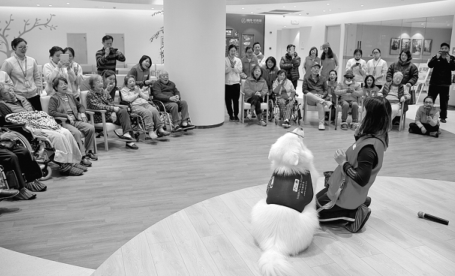Power bigger than barks and bites


"I saw this huge gap between animal-assisted therapy in China and elsewhere. I knew a huge amount about animals as pets, and I had a ton of experience as a trainer. My idea of using dogs in stage performances that were filmed was very restricted. Small animals that have been trained can help those around them."
Wu would soon experience the lack of understanding that those with autism and their parents often go through. As he and others working for him contacted rehabilitation organizations promoting his idea of using animals therapeutically to help children with autism, they were almost always rebuffed by people either skeptical or even suspicious about the idea they were pushing.
Skepticism is something Wu has learned how to handle. It emanates not just from experts but from parents who not only doubt that this rather exotic treatment could offer any real help, but also that therapy dogs pose a danger to their children.
However, over time, through sheer persistence, Wu has managed to win over naysayers, and he says he has a long list of rehabilitation institutions for children with autism, elderly care institutions and schools that can offer testimonials on the good work he and his dogs are doing. Those having received canine therapy include elderly people with cognitive impairment, bone cancer and leukemia, people with physical disabilities and people with depression, he says.
In fact this month his therapy dog program was officially approved and piloted by a rehabilitation hospital in Shanghai, which asked not to be named. This is believed to be a first in China.
The courses center on animal-assisted therapy divided into two stages, basic and intermediate, with a total of 18 days of high-quality course content.




































